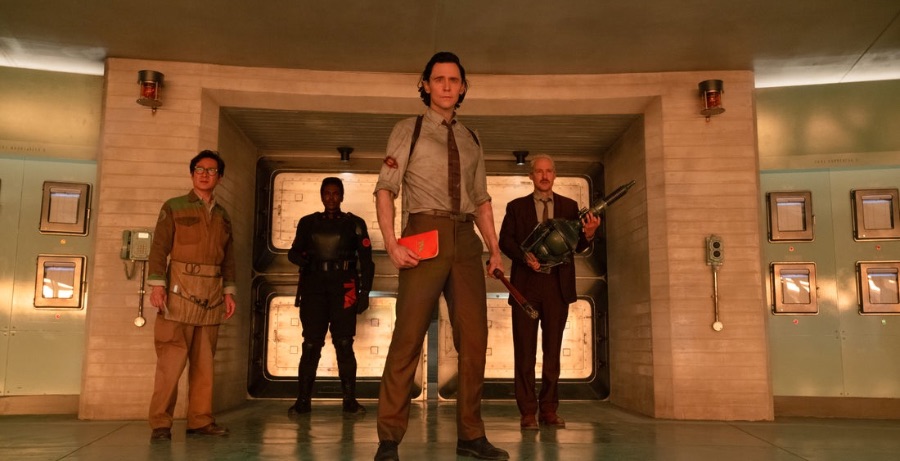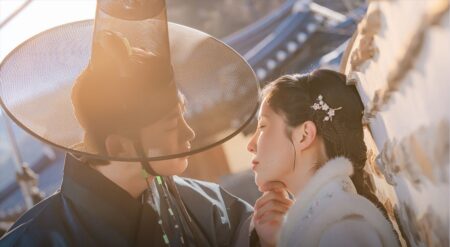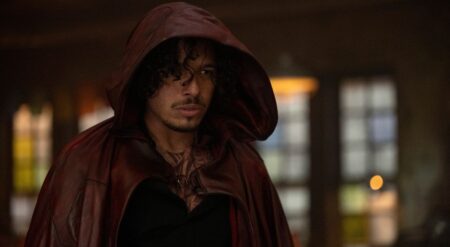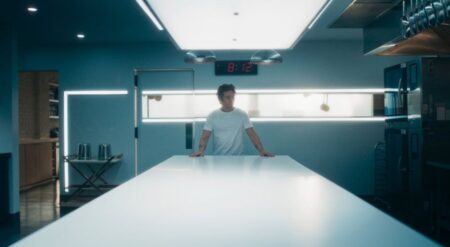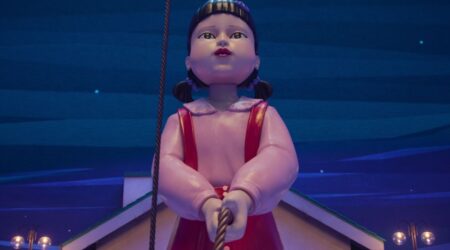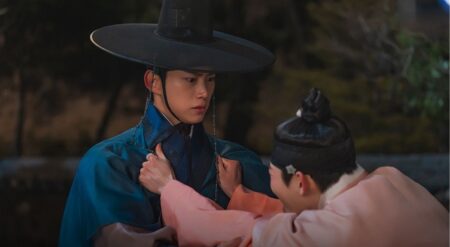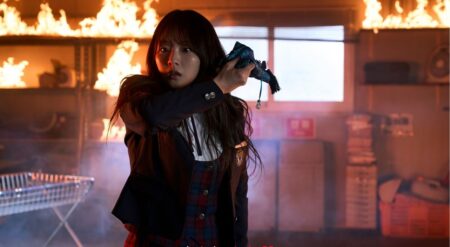Loki Season 2 comes in hot and declares itself as the one remaining good thing about Marvel (I jest…kind of). Still, while other Marvel TV series have stumbled as of late, either riding on the magnetic charisma of one character such as Ms. Marvel or the complete car wrecks that were She-Hulk and Secret Invasion, Loki arrives poised, and confident. With a premiere that throws out all of the stops and crafts an engaging, breakneck episode that threatens to careen off course before beautifully righting itself once more, the Trickster God might be stealing himself as someone good, but the series maintains that wicked energy.
Season 1 of Loki nearly stuck the landing aside from a few fumbles. Season 2 learns from those errors and delivers a heart-racing season that follows up on the timeline shenanigans of the first. Following Sylvie (Sophia Di Martino) having killed Kang — dubbed her as He Who Remains — and pushing Loki (Tom Hiddleston) back in a different version of the TVA where Mobius (Owen Wilson) doesn’t remember him, Loki must set out to return to his version of the timeline as an increasing threat towers over the TVA (Time Variance Association.) This is made all the more crucial considering the end of season one also created the multiverse, the timeline has broken. Loki teams up with Mobius, Hunter B-15 (Wunmi Mosaku), and others to save the TVA and find Sylvie, Ravonna Renslayer (Gugu Mbatha-Raw), and Miss Minutes (Tara Strong.)
The success of Season 2 stems largely from the involvement of director duo Justin Benson and Aaron Moorehead. Both executive producers and the directors of Episodes 1 and 4 of the season — easily the best of the four given to critics — their distinctive style and flair for science fiction are apparent. Having directed DIY films such as The Endless, and Something in the Dirt, along with working on fellow MCU series Moon Knight, they clearly have a knack for this type of storytelling and world-building. But the strongest part of Loki Season 2 is the absolute speed with which they barrel through the plot, refusing to waste any time.
This is most evident in the season premiere, which bottles the energy of a penultimate episode as Loki, Mobius, and company race against literal time to save the TVA, it having been threatened following season one when Sylvie killed Kang. This is where another key development arrives to help embolden the series, with Ke Huy Quan as one of the new main pivotal roles of O.B. His energy and delivery charge in and take the series with him, as the rhythm of the episode almost seems to shift due to his appearance and energy.
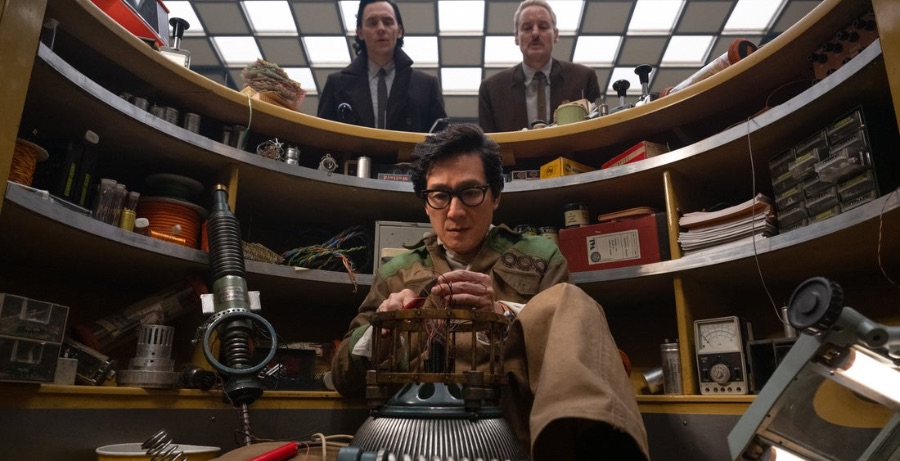
It’s thrilling and endlessly engaging. The entire cast remains strong, with Wilson and Hiddleston’s chemistry still tremendous as the show allows for more scenes between the two. Sylvie and the decision to make her a Loki variant in Season 1 is still a questionable decision as the writing tries to create cohesive reasons for her involvement.
Still, Di Martino allows the character a tangible inner strength. Mbatha-Raw is also given more to do with her own adventures and Strong — who voices the eerie AI Miss Minutes — continues to prove her performance might be one of the strongest in the series. If anything, Hiddleston could be given more to do, especially with such an endlessly fun and unpredictable character as Loki. That said, when he’s allowed to lean into that devious playfulness in Episode 2, or when the desperation rings through his voice in Episode 1, we’re always reminded that he is one the best casting decisions Marvel has ever made.
The elephant in the room obviously is Jonathan Majors’s involvement. Beyond whether or not you can separate the art from the artist in this case, it isn’t helped by the hamfisted and affected performance he delivers, one where every single performance decision is telegraphed, bellowing “this is acting” from his gestures and overtly physicalized mannerisms.
Though the episode he’s prominent in — Episode 3 — is the weakest of the bunch, despite a fun time excursion, the rest of the season we’ve seen so far is better than its predecessor. Something that Loki has that so much of the MCU lacks is an established tone and a setting that differentiates itself from the pack. The series is fully committed to the science fiction atmosphere of the world. Take, for instance, the mix of spherical and cubic in the set design, with the tiled ceilings of the TVA contrasting with the circular design of O.B.’s basement office. There’s the green that eats away at the world, a nod to our titular character, but there are also sickly oranges that create a fittingly out-of-time sensation.
The score by Natalie Holt similarly helps define the series, elevating the story with swelling musical cues that imbue Loki with foreboding and delicacy. Even the Miss Minutes design remains one of the more inventive decisions, this cartoon AI clock is threatening and off-putting despite the simplicity of the design.
Despite Episode 3 being a chore to work through, Loki Season 2, especially the premiere and fourth episode helmed by Benson and Moorehead, is a stellar science-fiction adventure. With raised stakes, shocking darkness, and strong characters who continue to enlighten and engage with audiences beyond what’s expected of them, the second season is both better than the first as well as the best thing Marvel has put out in ages.
Loki Season 2 is streaming now, exclusively on Disney+.
Loki Season 2
-
Rating - 8/108/10
TL;DR
Loki Season 2, especially the premiere and fourth episode helmed by Benson and Moorehead, is a stellar science-fiction adventure. With raised stakes, shocking darkness, and strong characters who continue to enlighten and engage with audiences beyond what’s expected of them, the second season is both better than the first as well as the best thing Marvel has put out in ages.

